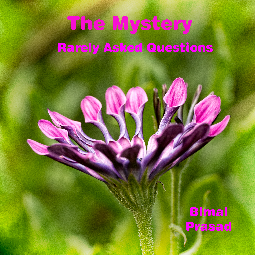Q: I’ve heard/read from multiple sources that the universe/non-dual everything there is/whatever you want to call it is ‘love’. How do we know that, and why couldn’t it be hateful/evil/neutral/any other way?
A: This is the sort of statement made by ‘new-agey’ teachers. Nowhere in the scriptures (to my knowledge) is this expression used. There is ONLY brahman/Consciousness. The ‘universe’ is mithyA, which means it is not real in itself; it is just name and form of brahman. Brahman is said to be unlimited (anantam) existence (sat) Consciousness (chit) but these are only for the sake of definition/pointers. See also Q. 100 and 120.
Q: In answer to Q.120, you said: “Indeed, according to traditional advaita, part of your preparation for enlightenment involves acting unselfishly, not harming others, living a moral life etc. All the opposites do exist at this level and, if you act knowing your action to be wrong, you will incur the lawful penalty (karma).“
I’m having trouble understanding why one should act ‘morally’ or ‘good’; i.e. why does karma exist at this level? Why is it set up this way?
A: The ‘bottom line’ of advaita is that there has never been any ‘creation’; no jIva has ever been born etc – there is only brahman. Obviously it does not seem like this; there is the appearance of duality and we initially believe this to be real. Accordingly, traditional advaita has a progression of teaching to accommodate this appearance. For those who still believe in duality, the teaching is aimed at the preparation of the mind to accept the more advanced teaching. This includes a world, a creator and laws applicable to the operation of the world and the action of the jIva. And the operation of cause and effect is one of these laws. If you act purposefully, you will reap the fruit of that action; if not in this life, then in the next.



